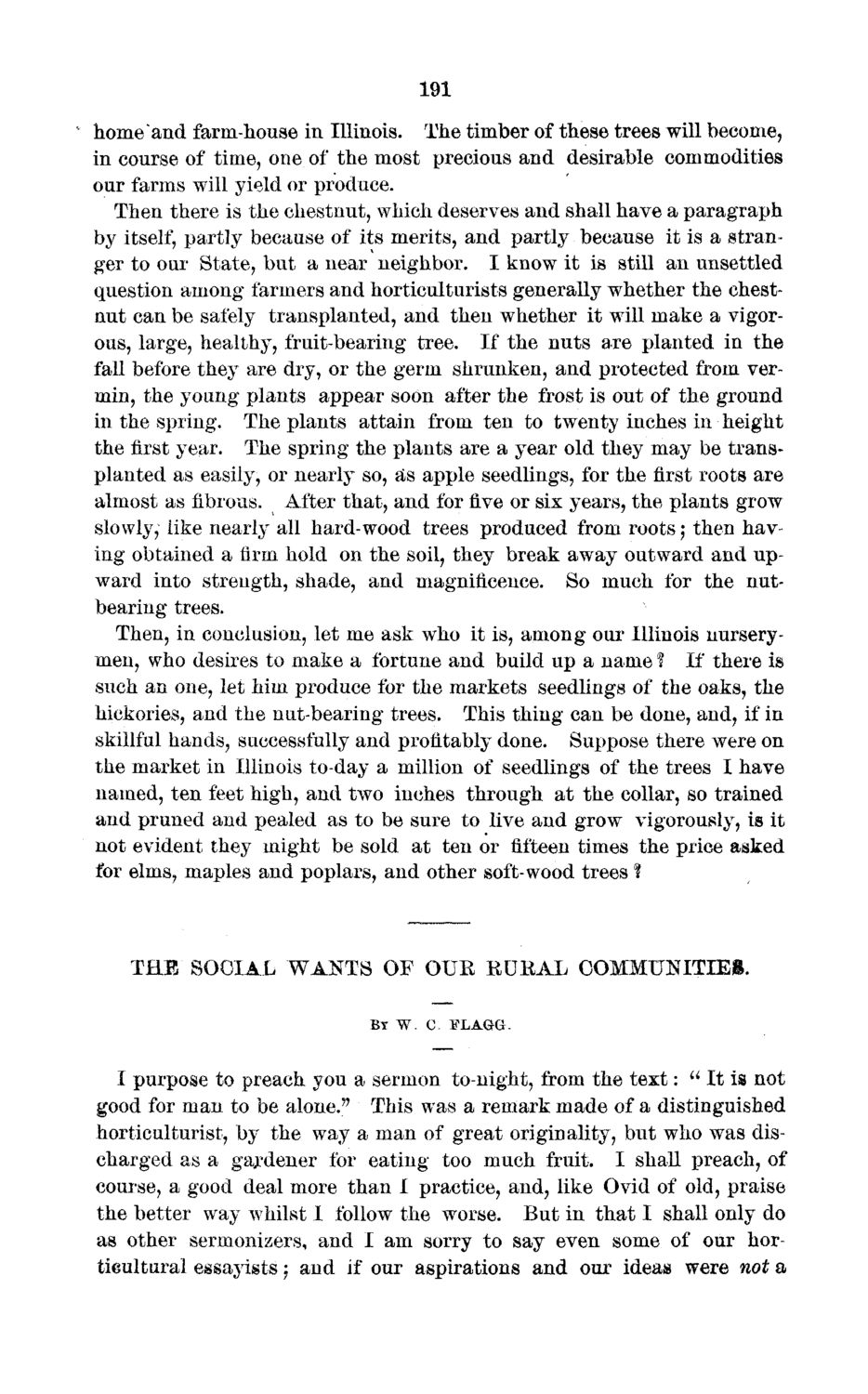| |
| |
Caption: Board of Trustees Minutes - 1873
This is a reduced-resolution page image for fast online browsing.

EXTRACTED TEXT FROM PAGE:
191 homeland farm-house in Illinois. The timber of these trees will become, in course of time, one of the most precious and desirable commodities our farms will yield or produce. Then there is the chestnut, which deserves and shall have a paragraph by itself, partly because of its merits, and partly because it is a stranger to our State, but a near neighbor. I know it is still an unsettled question among farmers and horticulturists generally whether the chestnut can be safely transplanted, and then whether it will make a vigorous, large, healthy, fruit-bearing tree. If the nuts are planted in the fall before they are dry, or the germ shrunken, and protected from vermin, the young plants appear soon after the frost is out of the ground in the spring. The plants attain from ten to twenty inches in height the first year. The spring the plants are a year old they may be transplanted as easily, or nearly so, sis apple seedlings, for the first roots are almost as fibrous. After that, and for five or six years, the plants grow slowly, like nearly all hard-wood trees produced from roots $ then having obtained a firm hold on the soil, they break away outward and upward into strength, shade, and magnificence. So much for the nutbearing trees. Then, in conclusion, let me ask who it is, among our Illinois nurserymen, who desires to make a fortune and build up a name ! If there is such an one, let him produce for the markets seedlings of the oaks, the hickories, and the nut-bearing trees. This thing can be done, and, if in skillful hands, successfully and profitably done. Suppose there were on the market in Illinois to-day a million of seedlings of the trees I have named, ten feet high, and two inches through at the collar, so trained and pruned and pealed as to be sure to live and grow vigorously, is it not evident they might be sold at ten or fifteen times the price asked for elms, maples and poplars, and other soft-wood trees % THE SOCIAL WANTS OF OUE EUEAL COMMUNITIES. BY W . C. FLAGG. I purpose to preach you a sermon to-night, from the text: " It is not good for man to be alone." This was a remark made of a distinguished horticulturist, by the way a man of great originality, but who was discharged as a gardener for eating too much fruit. I shall preach, of course, a good deal more than I practice, and, like Ovid of old, praise the better way whilst I follow the worse. But in that I shall only do as other sermonizers, and I am sorry to say even some of our horticultural essayists) and if our aspirations and our ideas were not a
| |